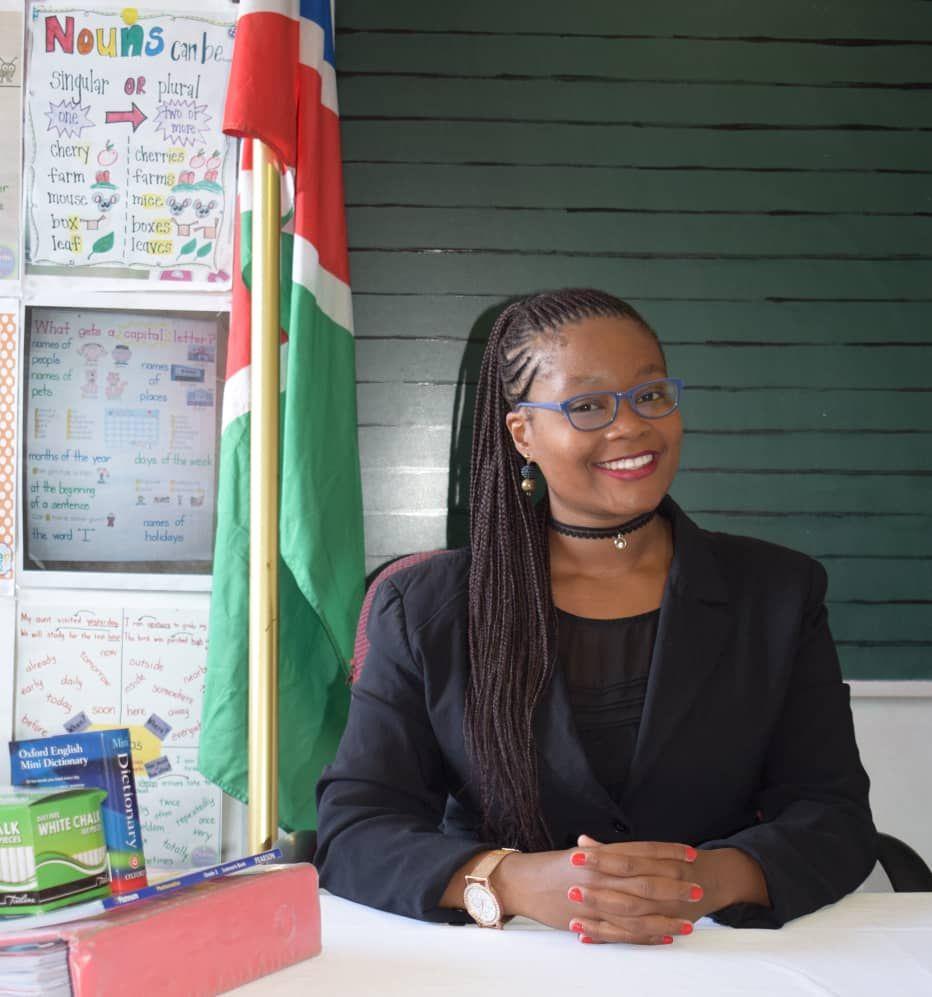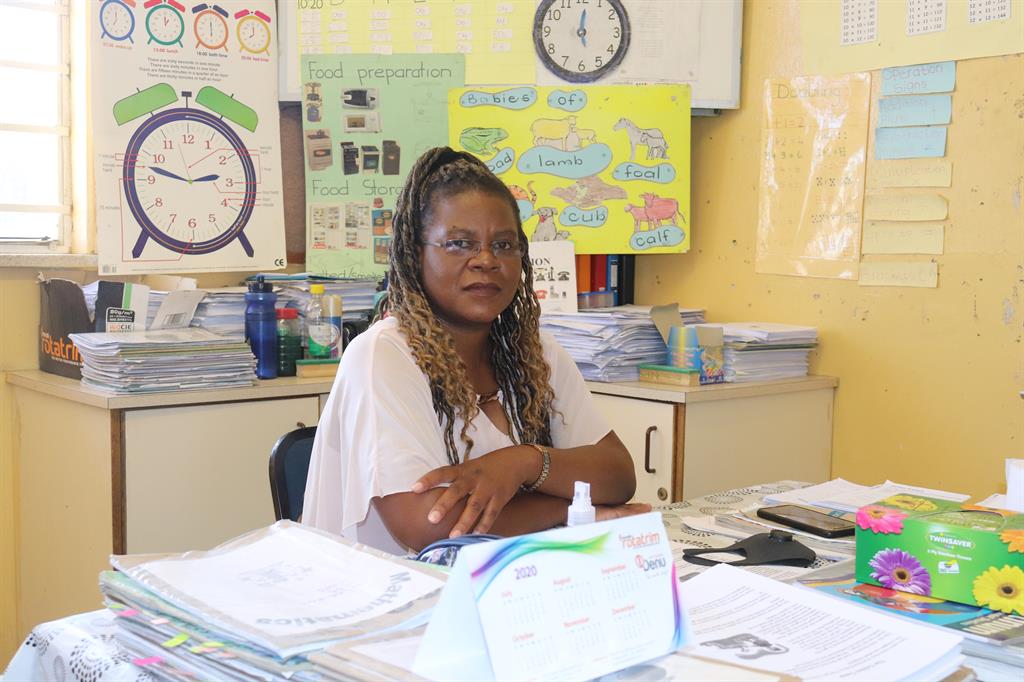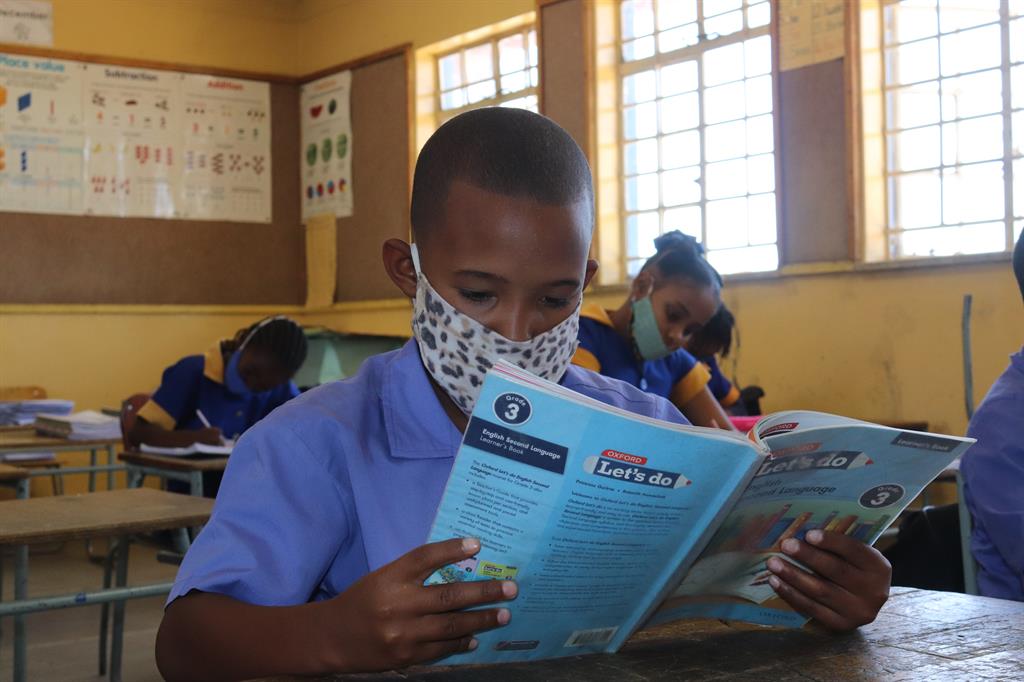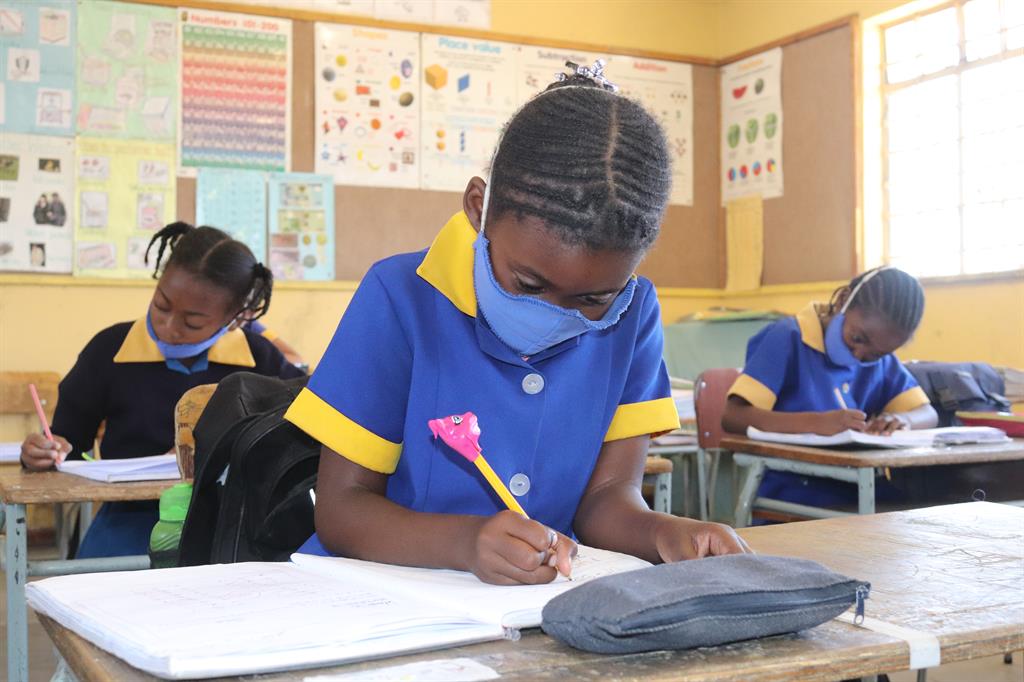Education superheroes doing the most
During the Covid-19 lockdown, schools and teachers had to change their entire perspective on teaching. Mutsa Pazvakavambwa and Ireen Mudabeti share some insight into the changes they faced.
Mariselle Stofberg
Many see teachers as superheroes, and the Covid-19 pandemic in particular has shown the resilience and determination of educators who never give up on their students.
The education sector has undergone many changes during the last few months, with the pandemic changing the way teachers, parents and learners view and approach education.
Teachers had to adapt and embrace technology in ways they haven’t done in the past, and parents had to place themselves in teachers’ shoes, with many essentially being forced to become teachers themselves.
“There have been many changes over the past few months. For children, it is the idea that Mom and Dad are teachers too now. The relationship they once had has evolved, because Mom can count in twos, and Dad knows the answer to number 10. The ‘classroom’ is a quiet corner in the house and the laptop or iPad is not just something they use to play games or watch cartoons any more,” said Mutsa Pazvakavambwa, a teacher at Sunshine Private School.
Adjusting
“In the mind of a five-year-old, school is now a very dangerous environment and their teachers are people they know personally. However, with all the changes, children are quickly adjusting. I think as adults we have grossly underestimated their abilities to adapt with the aid of technology,” she added.
Parents had to take on the added responsibility of providing education and a safe learning environment for their children.
“In a way, they have become ‘ghost students’. This means taking a more hands-on approach with their child’s schoolwork, preparing learning materials, downloading and uploading, constantly being in touch with teachers, as well as Googling, lots of Googling. The process of adapting goes hand-in-hand with plenty of decision-making, both long and short term. For instance, pulling children out of school to afford other responsibilities, or installing Wi-Fi and buying suitable gadgets. At some point, every parent questions whether they are doing enough,” Pazvakavambwa added.
Thinking outside the box
“For teachers, spending a career teaching in a certain way only for it to be turned on its head overnight, the saying ‘thinking outside the box’ comes to mind. What was once chalkboards and classrooms have become laptops and e-learning. The task of facilitating lessons has pushed many teachers to turn away from the textbooks and embrace online resources. Innovation has become a necessity to proceed with teaching. The idea of adapting is no longer about educating your children, but to leave no child behind,” Pazvakavambwa said.
Ireen Mudabeti, a teacher at Amazing Kids Private School and Academy, said she believes technology won’t just be used for the duration of the Covid-19 pandemic, but will become an integrated part of the education sector.
“Sooner or later, we were going to use new ways of teaching and learning. Every teacher and every learner had to learn how to use and adapt to the new way of doing things. Teachers have learnt how to present lessons online using computers and to do more research to update and upgrade their skills. Learners, on the other hand, have learnt how to do research and browse the internet to get answers for their schoolwork. In doing this, they have come across new things that added to their knowledge,” she said.
Words of encouragement
Parents might become overwhelmed and uncertain, because now they are moving into territories they never had to navigate before.
“Do not be afraid to ask for help. In our African communities, many ‘hands’ help raise a child. Ask for advice/help from relatives, friends or people you trust. The more you hear, the more you can see the direction you want your child’s education to move towards.
“Remember to take everything with a grain of salt. Try to find a balance. A few lines have become blurred over the past few months. It is helpful to identify what is important, possible and what is useful. By doing so, you are painting a clearer picture on how you can help your child learn from home,” Pazvakavambwa said.
“As a parent, you are doing what you can, so give yourself credit. Connect with your children and help where you can, so that when they go back to school, they have learnt new social, emotional and problem-solving skills,” Mudabeti added.
Many see teachers as superheroes, and the Covid-19 pandemic in particular has shown the resilience and determination of educators who never give up on their students.
The education sector has undergone many changes during the last few months, with the pandemic changing the way teachers, parents and learners view and approach education.
Teachers had to adapt and embrace technology in ways they haven’t done in the past, and parents had to place themselves in teachers’ shoes, with many essentially being forced to become teachers themselves.
“There have been many changes over the past few months. For children, it is the idea that Mom and Dad are teachers too now. The relationship they once had has evolved, because Mom can count in twos, and Dad knows the answer to number 10. The ‘classroom’ is a quiet corner in the house and the laptop or iPad is not just something they use to play games or watch cartoons any more,” said Mutsa Pazvakavambwa, a teacher at Sunshine Private School.
Adjusting
“In the mind of a five-year-old, school is now a very dangerous environment and their teachers are people they know personally. However, with all the changes, children are quickly adjusting. I think as adults we have grossly underestimated their abilities to adapt with the aid of technology,” she added.
Parents had to take on the added responsibility of providing education and a safe learning environment for their children.
“In a way, they have become ‘ghost students’. This means taking a more hands-on approach with their child’s schoolwork, preparing learning materials, downloading and uploading, constantly being in touch with teachers, as well as Googling, lots of Googling. The process of adapting goes hand-in-hand with plenty of decision-making, both long and short term. For instance, pulling children out of school to afford other responsibilities, or installing Wi-Fi and buying suitable gadgets. At some point, every parent questions whether they are doing enough,” Pazvakavambwa added.
Thinking outside the box
“For teachers, spending a career teaching in a certain way only for it to be turned on its head overnight, the saying ‘thinking outside the box’ comes to mind. What was once chalkboards and classrooms have become laptops and e-learning. The task of facilitating lessons has pushed many teachers to turn away from the textbooks and embrace online resources. Innovation has become a necessity to proceed with teaching. The idea of adapting is no longer about educating your children, but to leave no child behind,” Pazvakavambwa said.
Ireen Mudabeti, a teacher at Amazing Kids Private School and Academy, said she believes technology won’t just be used for the duration of the Covid-19 pandemic, but will become an integrated part of the education sector.
“Sooner or later, we were going to use new ways of teaching and learning. Every teacher and every learner had to learn how to use and adapt to the new way of doing things. Teachers have learnt how to present lessons online using computers and to do more research to update and upgrade their skills. Learners, on the other hand, have learnt how to do research and browse the internet to get answers for their schoolwork. In doing this, they have come across new things that added to their knowledge,” she said.
Words of encouragement
Parents might become overwhelmed and uncertain, because now they are moving into territories they never had to navigate before.
“Do not be afraid to ask for help. In our African communities, many ‘hands’ help raise a child. Ask for advice/help from relatives, friends or people you trust. The more you hear, the more you can see the direction you want your child’s education to move towards.
“Remember to take everything with a grain of salt. Try to find a balance. A few lines have become blurred over the past few months. It is helpful to identify what is important, possible and what is useful. By doing so, you are painting a clearer picture on how you can help your child learn from home,” Pazvakavambwa said.
“As a parent, you are doing what you can, so give yourself credit. Connect with your children and help where you can, so that when they go back to school, they have learnt new social, emotional and problem-solving skills,” Mudabeti added.








Kommentar
Allgemeine Zeitung
Zu diesem Artikel wurden keine Kommentare hinterlassen